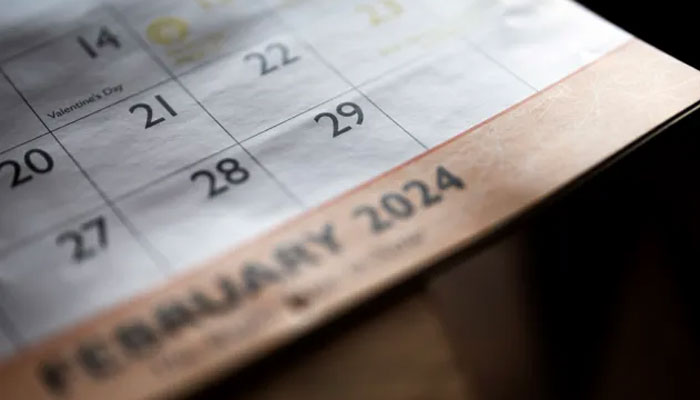Leap of myth: Are those born on February 29 unlucky?
One of the leap year legends says women in Ireland were allowed to propose only on February 29.
February 29, 2024

A leap year occurs every four years and has 366 days instead of the usual 365, but did you know that this year also has several myths linked to it?
In a leap, an extra day is added to the calendar to align with Earth's orbit around the sun and astronomical seasons. Without the extra day in February, the calendar and seasons would gradually get out of sync.
The extra .25 creates a leap year every four years, allowing the calendar to align with the solar year, as the sun's orbit takes approximately 365.25 days.
This system was introduced by Julius Caesar, the Father of Leap Year, in 45 BC to correct the 365-day year in Egypt and without it, our current calendar would be off by 5 hours, 48 minutes, and 45 seconds each year.
However, people have associated many myths to the leap year and the leap day which is the extra day added to the calendar on February 29th.
Unlucky years
The most famous myth about the leap year is that it brings bad luck.
Italian proverbs warn women that leap years can make them erratic and advise them to delay making significant life decisions until the leap year ends.
While there is no evidence supporting this theory, two significant events during the leap years, were the burning of ancient Rome in 64 AD and the sinking of the Titanic in 1912.
Additionally, because the last leap year was in 2020, one could say that this myth is true but it has not been proven.
Unlucky birthday
Although the probability of being a leapling — those born on a leap day — is 1/1461, approximately 4.8 million people from across the globe claim a leap day birthday. But are they all unlucky?
It depends on where they are because, in Scottish culture, leaplings were said to have a year of "untold suffering".
Broadly, in German and Greek culture the entirety of the year is considered luckless for those born on Leap Day.
However, in the United States, leaplings are celebrated and in Anthony, Texas they are sure to be leaping for joy, as a four-day festival is held in honour of them and the entire year.
Only day when women can propose

Leap Day is thought to be the one (and only!) occasion on which women can defy convention and pop the question to their significant others, a legend that originates in Irish folklore.
According to legend, an Irish nun by the name of St. Brigid requested women's permission to propose from St Patrick, the patron saint of Ireland. In the end, St. Patrick consented, but only on February 29th, a day that occurs once every four years.
Since many people now feel that the custom is out of date and that anyone should be able to propose on any day, regardless of gender, equality has advanced dramatically over the ages.











